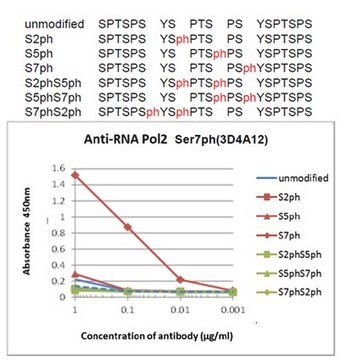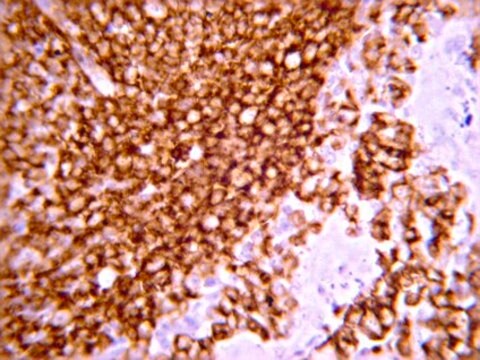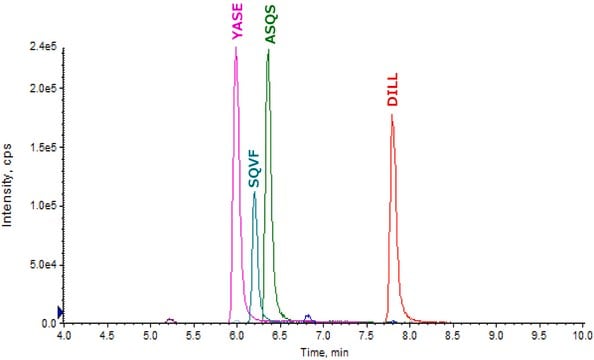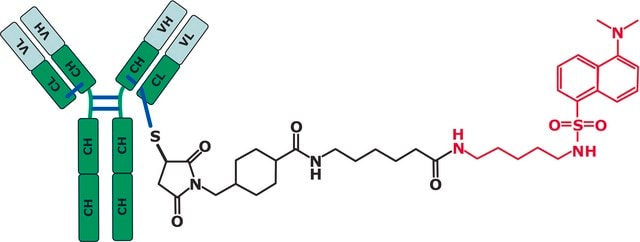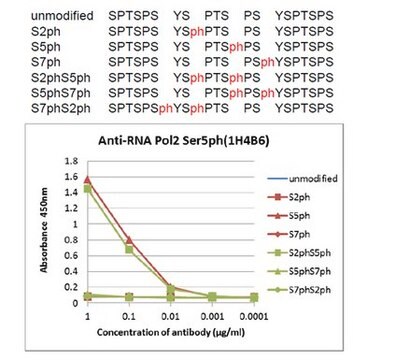04-1570-I
Anti-RNA polymerase II subunit B1 (phospho-CTD Ser-7) Antibody, clone 4E12
culture supernatant, clone 4E12, from rat
Sinónimos:
DNA-directed RNA polymerase II subunit RPB1, RNA polymerase II subunit B1, DNA-directed RNA polymerase II subunit A, DNA-directed RNA polymerase III largest subunit, RNA-directed RNA polymerase II subunit RPB1
About This Item
Productos recomendados
biological source
rat
Quality Level
antibody form
culture supernatant
antibody product type
primary antibodies
clone
4E12, monoclonal
species reactivity
mouse
species reactivity (predicted by homology)
human (based on 100% sequence homology)
technique(s)
ChIP: suitable
ELISA: suitable
western blot: suitable
isotype
IgG1κ
NCBI accession no.
UniProt accession no.
shipped in
wet ice
target post-translational modification
phosphorylation (pSer7)
Gene Information
human ... POLR2B(5431)
General description
Specificity
Immunogen
Application
Demonstrated to react with human RBP1 in Ni et al., 2011. Transcription 2:5, 237-242
Quality
Western Blotting Analysis: A 1:2,000 dilution from a representative lot detected RNA polymerase II subunit B1 (phospho-CTD Ser-7) in 10 μg of untreated NIH/3T3 cell lysate.
Target description
Linkage
Physical form
¿No encuentra el producto adecuado?
Pruebe nuestro Herramienta de selección de productos.
Storage Class
10 - Combustible liquids
wgk_germany
WGK 1
Certificados de análisis (COA)
Busque Certificados de análisis (COA) introduciendo el número de lote del producto. Los números de lote se encuentran en la etiqueta del producto después de las palabras «Lot» o «Batch»
¿Ya tiene este producto?
Encuentre la documentación para los productos que ha comprado recientemente en la Biblioteca de documentos.
Nuestro equipo de científicos tiene experiencia en todas las áreas de investigación: Ciencias de la vida, Ciencia de los materiales, Síntesis química, Cromatografía, Analítica y muchas otras.
Póngase en contacto con el Servicio técnico